So hey! I’m starting a new series, because I don’t have enough apparently. Something has always fascinated me about great director’s later films. Wouldn’t, as you get more practice and more experience, make deeper and more complex films? Obviously that’s not quite true. No one, for example, would argue that Family Plot is superior to Rear Window. Or that Some Like It Hot is a worse film than Buddy Buddy.
Why is this? Why do some directors, considered the greatest of all time, gradually descend into cinema that could charitably be described as “not their best.” On the other hand, what motivates some artists to produce some of their best work as their final films. Of course some films, like Paprika or The Sacrifice were completed when their directors were dying suddenly of fast acting cancers, and therefore are representative of the peak of their creative powers. These always feel like we were robbed far too soon.
Here we find in Robert Bresson’s L’Argent a special case. Like Bela Tarr would after him, Bresson’s final film came in 1983, more than a decade before his death in the early 90s. This, to me, communicates something important about L’Argent, a very specific intent on Bresson’s part that this be the end of his body of work. And honestly, this is pretty galling considering the actual content of the film. 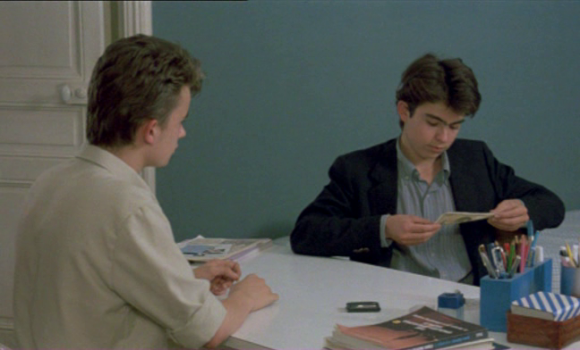
To place L’Argent in the proper context, we should probably first get a better feel for Bresson’s work. Bresson was a deeply religious man, in fact for most of his life he worshipped at the Notre Dame cathedral in Paris. In the 50s (probably his most influential era), Bresson was obsessed with the metaphysical aspects of prison and criminality. Paul Schrader, the most visible English speaking Bresson devotee, described his style using the Freud phrase “the representation of a thing by it’s opposite” meaning that one way to portray something is by deliberately removing every trace of it, and letting the viewer notice that there is none of it there. Bresson accomplished this by removing every aspect of cinematic style from his films. Save for his first two films, he almost always used non-professional actors, so that it would be easier for him to get blank, emotionless performances from them. His production design and costume design are almost always bland, uniform-like and flat. He almost never used expressive lighting or camerawork, favoring flat light and static camera. He didn’t even hold his shots especially long, or cut especially quickly. And the scripts are subdued to the point of non action. In his own words “No actors, no parts, no staging”
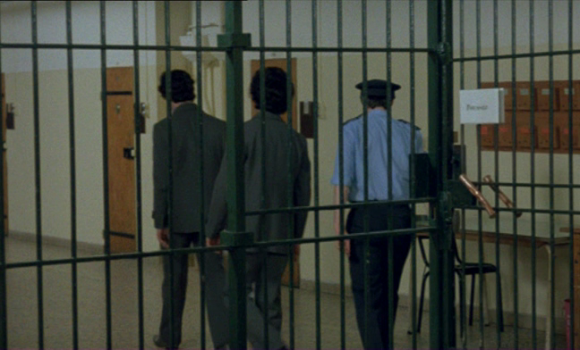
To those of you that have never seen a Bresson film before, what I just described sounds like absolute death. It’s the opposite of what people think of when they say “movie.” But the important thing to know about Bresson is that everything he does he does for a specific reason. Every shot and action in his film is elaborately planned like the structure of a Catholic mass. And in the same way, all point to something greater. The central metaphor of Bresson’s work in the 50s, it is that life is a prison, and that only through grace and goodness, can we escape. An early example of the prison metaphor, A Man Escaped, is pretty simple. The hero has to escape from a Nazi prison, and through careful planning and single minded devotion to his main goal, he eventually does so (that’s not a spoiler, its in the title). The religious connection is established early here in the full French title, which is closer to “A Man, Condemned to Die, Escapes or The Wind Bloweth Where It Listeth. The title not only drives home the ultimate consequences if the man does not manage to escape, but also points to a quote from the Gospel according to John 3:8. The full quote goes:
The wind blows where it wishes, and you hear its sound, but you do not know where it comes from or where it goes. So it is with everyone who is born into the spirit.
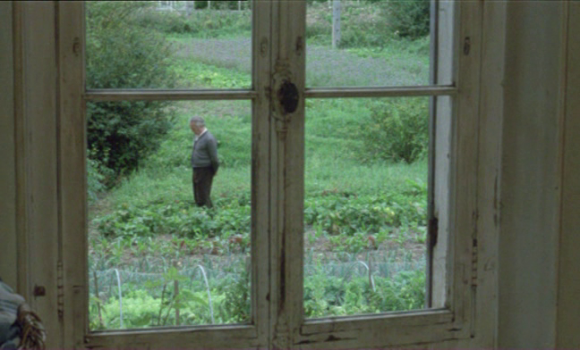
This quote is the beginning of a metaphor in the New Testament where The Holy Spirit is equated with wind. In the Acts of the Apostles, at the Pentacost, The Holy Spirit announces itself both through tongues of fire, but more importantly, as a gust of wind. When Jesus spoke the above verse, he spoke to a world that not only was aware of wind as an invisible, omnipresent force, but as an essential part of fishing and trade. Therefore, we can assume that Bresson is not only using Prison as a metaphor for the grace of God permeating even the walls of a Nazi prison, but also as a motivating force for the main character to be as driven as he is. He is saved through grace.
In Pickpocket, Bresson developed this metaphor even more and in Au Hasard Balthazar, a movie about a donkey, he began to become increasingly bleak about the nature of humanity. Even though Pickpocket ultimately has an uplifting ending, both films posit that life itself is a prison, and that acts of thoughtlessness or cruelty keep us locked in. Pickpocket rails against the cruelty of the class system and of pride, which drives the pickpocket to continue to alienate himself and to ruin his life. In Balthazar, he shows how men can be brutal to both women and to animals. Man, Bresson says, is a wolf to man. By focusing on cruelty, he points to something greater, just like how when we’re in a locked cell, we think about the outside.
And that brings us to L’Argent.
L’Argent is an adaptation of a short story by Tolstoy, who Bresson has so much in common with. It tells the story of how a couple of entitled rich kids try to pass off a foraged 500 franc note[1], and through a cascading story of events this minor act of forgery results in five murders, a divorce and the death of a child. The events are set in motion and kept in motion because of constant, unthinking human cruelty. The rich kids want a couple hundred extra francs, probably to spend frivolously, so they pass it off on a photography store. The store accepts it, but the boss dosen’t want to lose that 500 francs, so he passes it off on a service worker. As the service worker is low class, he is instantly scrutinized when he (not knowing that the note is a forgery) tries to spend it at a restaurant. He is arrested and although he is given a suspended sentence, is fired from his job. So he has to turn to being a getaway driver for a robbery and he descends from there.
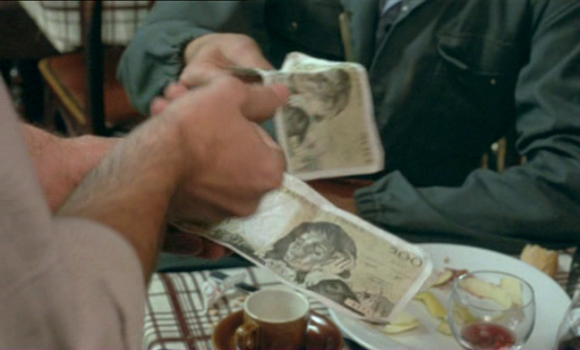
In L’Argent Bresson explores the part of the prison metaphor that on the surface seems to be the simplest, that of the act of grace. He seems to be lamenting, through the first part of the film, that grace is so infrequently given, and therefore we still stay in the prison of our lives. It would have been an act of grace for the store owner to do the right thing and throw away the foraged note. It would have been an act of grace for the restaurant owner to quietly notify the innocent man of the problem rather than make a fuss and call the police. It would have been a societal act of grace if the someone with a criminal record wasn’t forced into crime as a way to support his family. These would have been perfectly timed and would have been able to save a lot of heartbreak. That doesn’t happen.
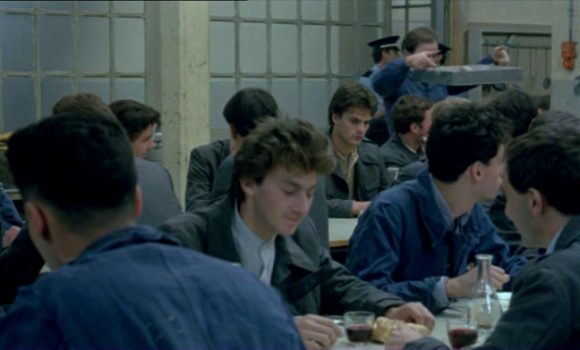
Instead he goes to prison. In prison the innocent man loses everything. His child dies, his wife leaves him, and he is stripped of his humanity. This is where Bresson shows us the mirror nature of the prison upon real life. Each action in the prison is echoed by something that happens on the outside, and the innocent man is only punished more.
When he is released from prison, the man has nothing. At this point, we think we know Bresson’s game, and that some angelic woman will appear and through grace he will be saved. It’s basically the ending of Pickpocket, and Schrader’s American Gigolo and Light Sleeper. And one does show up. A kindly old woman takes the man in and sees the good in him. But Bresson plays a cruel trick on us. He underscores that we all have to be willing to extend grace to our fellow men, not just any individual. A single individual or even a single family cannot combat the evil of the world through grace. And so, even though it is the man who kills them all with an ax, in the broader sense the world has turned him into an avatar of their evil, by corrupting him.
The ending is the most brutal piece of filmmaking I’ve ever seen. It’s easy to see where Michael Haneke might have gotten his ideas of how to film his most brutal set pieces. We don’t see the acts themselves all we see is an ax, hands, feet, a dog, and blood splatter. We don’t even see the man’s face or hear any screams other than a dogs whining and one sentence from the murderer “Where’s the money?”
“Where’s the money?” (“Ou est L’argent?”). Why would he ask that? Bresson leaves us with that question. If he gets an answer, he doesn’t seem to ever gather it or use whatever money might be in the house.
Honestly, I have no answers. Bresson has always been a frustrating and fascinating mystery ever since I discovered him. Why is the pickpocket so devoted to his crime? What does the prison escapee feel when he leaves his fellow countrymen to the fate he just escaped? Why am I crying over a donkey?
Why does he ask where the money is?
Bresson teaches us more about spirituality than many overtly spiritual films because every spiritual thing comes with these unanswerable mysteries. And you’ve got to think about these things. You can’t figure it out, but you have to try.
So that’s where Bresson has left me.
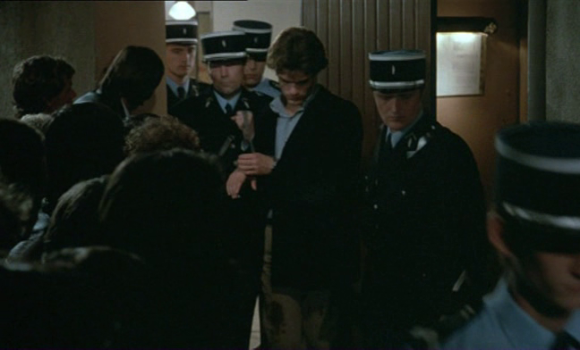
If you’ve got a final movie that you’d like me to write about let me know in the comments!
[1] About $80 I think.